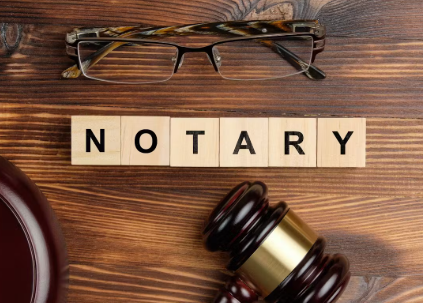How to Find a Notary and Why You Might Need One

Whether you’re finalizing a real estate deal, signing loan documents, or authorizing power of attorney, having a document notarized adds a layer of legal protection. Yet, many people aren’t sure when or why they need a notary — or where to find one. Services like the Notary Public Directory make it easy to connect with a certified notary near you, saving time, reducing errors, and ensuring your documents meet all legal requirements.
What Does a Notary Public Do?
A notary public is a state-authorized official who serves as an impartial witness during the signing of important legal documents. Their role is to:
Verify the identity of signers
Ensure all parties are signing willingly and knowingly
Prevent fraud by confirming the authenticity of the documents and signatures
Affix an official notary seal to validate the notarization
This process helps protect all involved parties from potential disputes or legal issues down the road.
Common Situations That Require a Notary
Many legal, financial, and personal transactions require notarization. Some of the most common include:
Real estate closing documents
Loan agreements
Wills and trusts
Power of attorney
Affidavits and sworn statements
Adoption paperwork
Vehicle title transfers
Business contracts
Having these documents notarized ensures they are legally binding and recognized by courts, government agencies, or financial institutions.
Read Also: STEM Program Hong Kong: Empowering Future Innovators Through Hands-On Learning
Benefits of Using a Notary
Here’s why using a notary public is often a smart and necessary step:
1. Legal Protection
A notarized document is more difficult to dispute. If legal issues arise, courts are more likely to accept the document as authentic when it’s been notarized.
2. Prevention of Fraud
Notaries check the identity of all signers, making it harder for someone to forge a signature or impersonate another person.
3. Peace of Mind
Knowing a legal professional has verified your paperwork can provide reassurance in stressful situations, like estate planning or property transactions.
4. Widespread Acceptance
Many government agencies, banks, and businesses require notarized documents to be processed.
How to Find a Notary Near You
Locating a notary is easier than ever thanks to online directories and mobile notary services. If you’re wondering, “Where can I find a notary public near me?”—consider the following options:
1. Online Notary Directories
Websites like notarypublicdirectory.com provide a centralized platform to find local notaries across the United States. You can search by ZIP code, state, or service type (e.g., mobile, 24-hour, loan signing agents).
2. Banks and Credit Unions
Many banks offer free notary services to their account holders. It’s best to call ahead, as availability varies by branch.
3. Shipping and Postal Centers
Stores like UPS, FedEx, and independent shipping centers often have notaries on staff.
4. Mobile Notary Services
A mobile notary travels to your home, office, or any agreed location. This is especially convenient for busy professionals, elderly clients, or those with limited transportation options.
5. Public Libraries and City Halls
Some community centers, libraries, and government buildings offer notary services at low or no cost.
What to Expect During a Notarization
If it’s your first time using a notary, here’s a quick overview of what the process looks like:
- Bring Valid Identification
You’ll need a government-issued photo ID (like a driver’s license or passport) to confirm your identity. - Do Not Sign the Document in Advance
Most notaries must witness the actual signing to validate the process. - Understand What You’re Signing
A notary may refuse service if it appears you’re being coerced or don’t fully understand the document. - Pay the Notary Fee
Fees vary by state, but most notaries charge between $5 and $25 per signature. Mobile notary services may charge extra for travel. - Receive the Notarized Document
After verifying your ID and watching you sign, the notary will add their stamp or seal and provide any necessary certificates.
Can You Get Notarized Online?
Yes — remote online notarization (RON) is legal in many U.S. states. This allows you to connect with a certified notary via video conference and sign documents electronically. It’s ideal for:
Clients in remote locations
People who need emergency or after-hours notarization
High-volume real estate closings or legal offices
Before using RON, check your state’s laws and ensure the receiving agency accepts e-notarized documents.
How to Become a Notary Public
Interested in becoming a notary yourself? Here’s a general roadmap (though requirements vary by state):
1. Meet State Requirements
Most states require applicants to be 18+, legal residents, and free of felony convictions.
2. Complete Training or Exam (if required)
Some states require a notary training course or passing an exam before applying.
3. Submit Application and Fee
Apply through your state’s Secretary of State website. Fees typically range from $20 to $100.
4. Purchase Notary Supplies
You’ll need a notary seal or stamp, a record book (journal), and possibly errors & omissions (E&O) insurance.
5. Take an Oath of Office
This is often done in person at a county clerk’s office.
6. Start Offering Notary Services
Once commissioned, you can start notarizing documents for individuals or businesses.
Tips for Choosing the Right Notary Service
Not all notaries offer the same level of professionalism or availability. Here’s what to look for when choosing one:
Certification and credentials
Availability (evenings/weekends if needed)
Experience with your document type
Positive reviews or recommendations
Clear pricing with no hidden fees
Mobile or remote options if needed
Services like Notary Public Directory make it easy to filter and compare notaries across the U.S., so you get the right match for your needs.
Final Thoughts
Whether you’re signing legal paperwork, buying property, or starting a business, having access to a trusted notary is essential. Fortunately, finding one has never been easier. Online platforms like 24 Hour Notary or notarypublicdirectory.com help connect you with professionals in your area — anytime you need them.
Having your documents notarized adds credibility, protects against fraud, and ensures legal compliance. Don’t wait until the last minute — find a reliable notary now and save yourself time, stress, and potential legal trouble.





